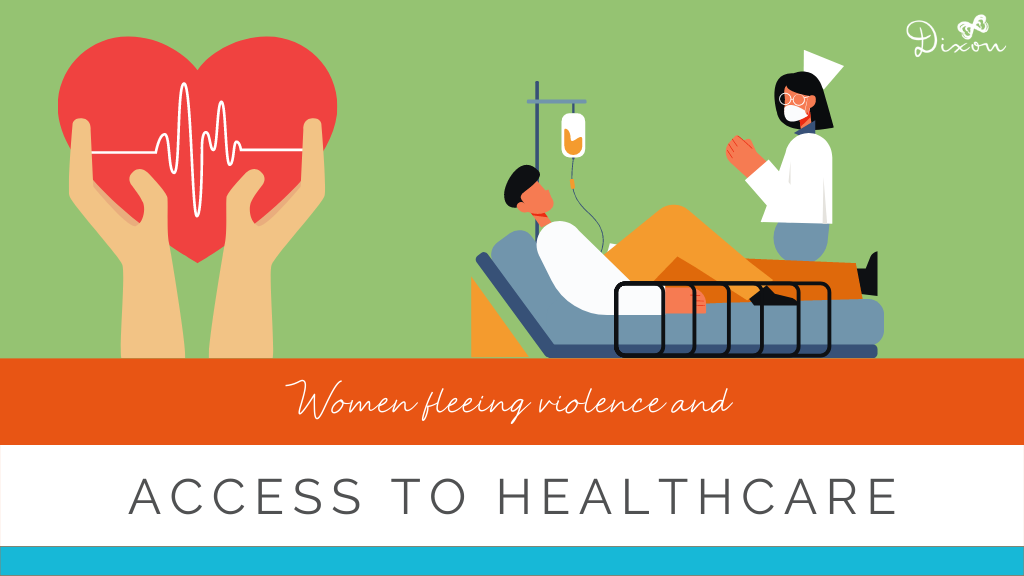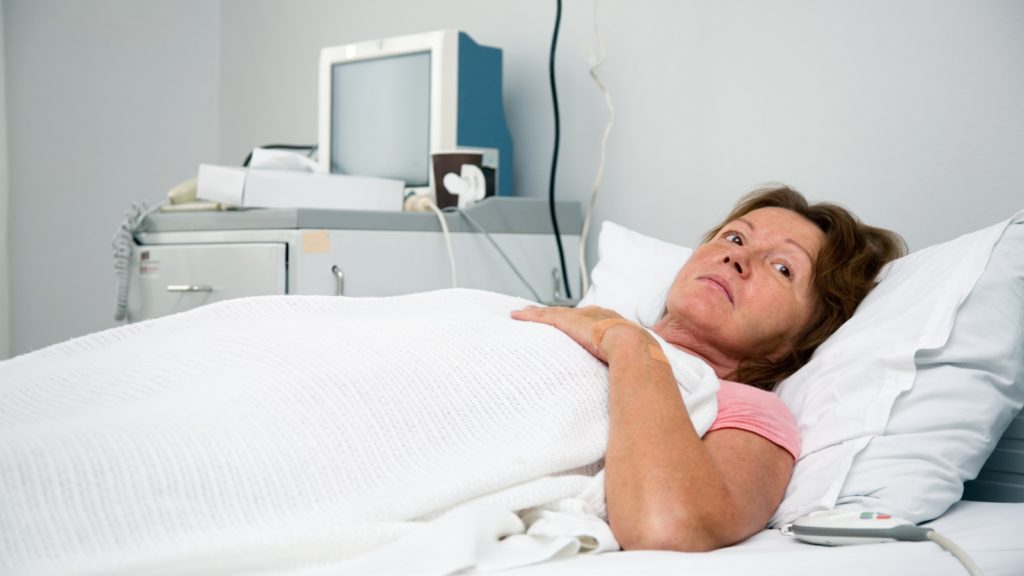
While both men and women are impacted by intimate partner violence, women make up the vast majority of cases, and are also more likely to be seriously injured or killed as a result of incidents of domestic violence. For example, of the 81 intimate partner victims of violations causing death reported by police in 2016, 63 (78%) were female.
After escaping abuse, women and children fleeing violence must be able to access a variety of social services in order to rebuild their lives. One of the most necessary services and often a first step after experiencing violence is to seek physical and mental healthcare.
While healthcare in Canada is universal, there are prevalent stigmas and biases that can make it difficult for many to not only access healthcare, but to receive effective and respectful treatment.

Mistrust and inaccessibility
When it comes to recovering, and starting a life free of violence, accessing healthcare services and supportive healthcare professionals is integral to recovery and success. This means survivors of domestic violence must navigate not only their journey of fleeing abuse, but also the Canadian healthcare system.
Many women, specifically BIPOC, LGBTQIA2S+ women, and women from underserved areas, feel a sense of mistrust toward the healthcare system. This mistrust has been earned over decades of silencing and discrimination. One in five women say they have felt that a healthcare provider has ignored or dismissed their symptoms.
When examining the intersectional effect of other determinants of health, the picture of systemic bias becomes clear. In almost all categories, Black and Indigenous women tend to suffer most when it comes to health inequalities. Indigenous women suffer higher rates of chronic illnesses like Diabetes, Tuberculosis, and Arthritis, are less likely to have a regular doctor, and face significantly more stereotypical beliefs from providers that can cause apathy and lack of effective treatment. Similarly, Black women in Canada are less likely to have access to health screenings, are more likely to die of diseases like cancer, and have a higher rate of infant mortality.
How exactly does this bias prevent effective care and lead to the statistics above? Biases held and judgements made based on these false narratives lead to subpar outcomes and care. This is because decisions about women’s healthcare are made based on a lack of knowledge and false assumptions about health issues. For example, many healthcare providers tend to assume women exaggerate symptoms or pain. Much of this discrimination and disrespect is not intentional, but is based in unconscious assumptions health professionals, and societies hold about BIPOC women, immigrant women, and women from lower socio-economic status.
Unique health concerns faced by women fleeing violence
Women fleeing violence are subject to not only the general gender bias that exists in Canada’s healthcare system. but also face unique challenges that further prevent them from obtaining a higher standard of care:
Substance abuse – substance abuse is stigmatized in the Canadian health system, which means that, even if women can feel safe accessing healthcare, they may not be receiving the best treatment. Specifically, “women who have been abused are 15 times more likely to abuse alcohol and 9 times more likely to abuse drugs than those without a history of abuse.” (). Substance abuse is often a way for survivors of abuse to cope with their circumstances, however, it can be perceived in the medical field instead, as a personal failing, or individual choice.
This can lead women who seek out care to feel judged and disrespected. Further, those judgements can be channeled into a lack of adequate care. This looks like women suffering from substance abuse being made to feel alienated and degraded, even fearing that her children may be taken from her, rather than feeling supported, and receiving help for the cause of her substance use.
Mental Health issues– another distinct issue facing survivors is mental healthcare. Mental healthcare in Canada is generally underfunded, and the populations that suffer most from this lack of services are also those most likely to experience, and be fleeing from, violence. This lack of mental health treatment makes it even more likely that women who are survivors of abuse will
Traumatic Brain injuries- Physical Violence against women can have lasting effects. One study showed that of 99 abused women who were interviewed, three-quarters had sustained some type of brain injury from their partner. Years later, many of them showed impaired cognitive function, when measured on standard tests. The lack of knowledge on brain injuries in abused women also makes it more difficult for them to receive adequate care and accurate diagnoses.

How to improve support and treatment for women fleeing violence
Healthcare systems and professionals are slowly working to address the systemic biases that exist in treatment and access. However, the process of addressing the root causes of prejudice and discrimination that exist in a vast and bureaucratic healthcare structure will not see immediate results for the women impacted most. There is still much more research and analysis necessary to fully understand how and why this this systemic gender bias exists, and how to combat it. These initiatives include increasing diversity in the medical field, increasing mental health funding, and improving education about social health determinants in the healthcare field and in society.
In the meantime, it is integral to provide support in navigating social systems like healthcare to ensure survivors of VAW are receiving necessary treatment, and are able to stand up for themselves when they don’t.
At Dixon, we strive to support women in vulnerable positions in using and navigating these systems. While we should be working constantly to improve the social systems that these women rely on, it is also important to recognize the reality that these systems are unequal in how they serve women, and in the care they provide. Providing mental healthcare supports like family and violence elimination counseling, along with the resources to allow women to stand up for themselves and advocate for their health can all contribute to providing a better quality of treatment for women fleeing violence.
If you are in Metro Vancouver and need help, Dixon’s 24-hour intake line is accessible at 604-298-3454. For resources across the Province please call VictimLink BC at 1-800-563-0808. If you are in immediate danger, please call 911.
